
19 Chrome Extension Success Stories [2026]
A Chrome extension is a small software program that allows you to customize the way your web browser works. Extensions can add new features to your browser or change the way existing features work.
If you have skills in programming and coding, you can create your own Chrome extension and then sell it on the Chrome Web Store. You can also offer it for free and generate revenue through advertising. This is a great way to leverage your skills and create a business that can be profitable.
You can create an extension that helps people with their productivity, or you can create an extension that provides security for the user’s data.
Creating a Chrome extension is an innovative way for programmers, developers, and coders to start their own businesses and showcase their skills.
In this list, you'll find real-world chrome extension success stories and very profitable examples of starting a chrome extension that makes money.
1. GMass, Inc. ($5.4M/year)
During his previous business venture, Wordzen, the founder recognized the necessity of sending personalized emails to small groups. After researching available options, he was not satisfied with the solutions offered. Therefore, he developed GMass as an internal tool to aid in managing his business. Although Wordzen failed to gain much traction, GMass proved to be successful and was featured on Product Hunt, giving him the validation that he needed to make the decision to pursue this as a business.
How much money it makes: $5.4M/year
How many people on the team: 1
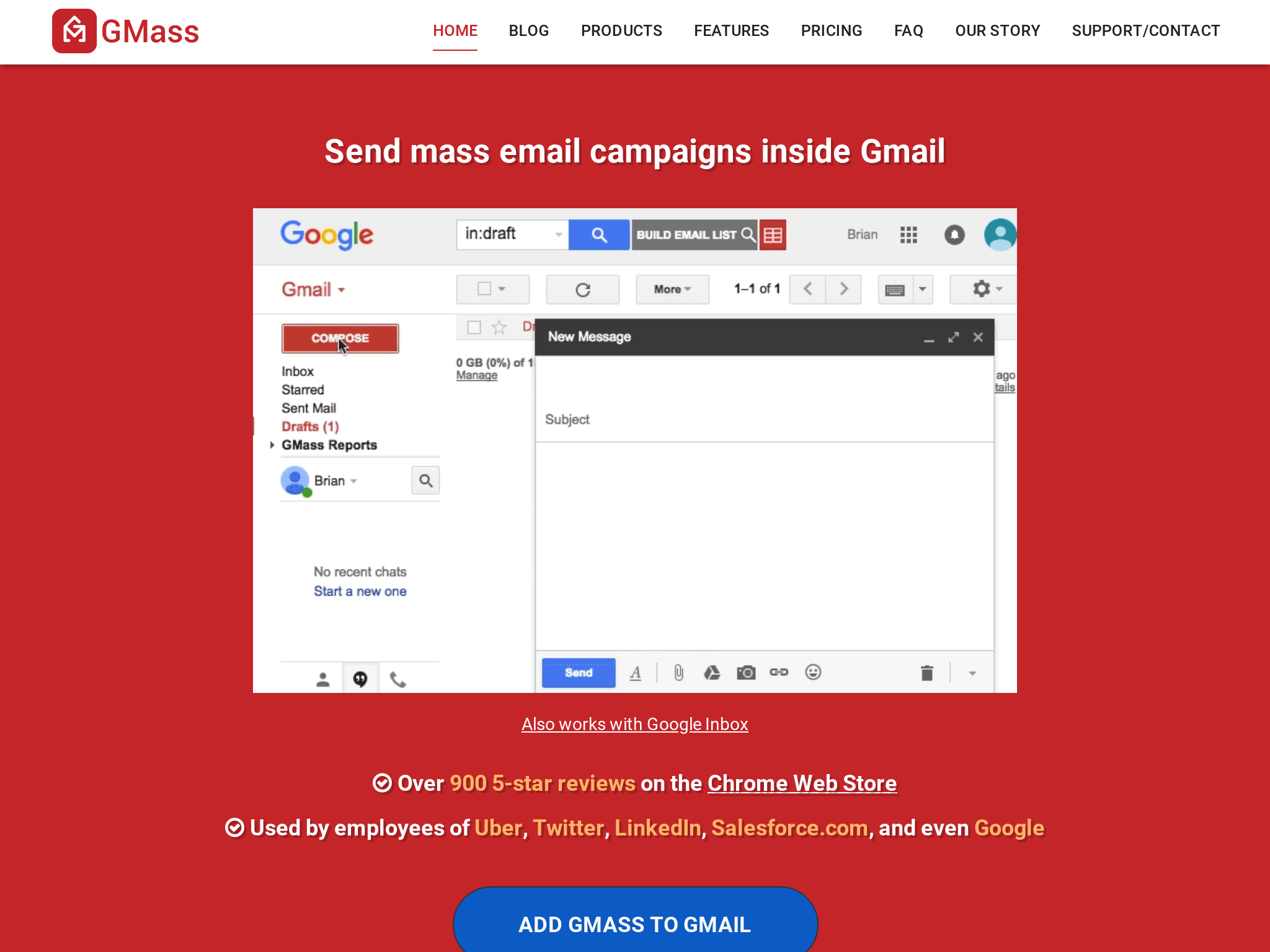

GMass, an email marketing platform that allows users to send cold emails and email marketing campaigns with Gmail, has attracted over 500,000 user signups, including major tech companies like Uber, LinkedIn, and Google, and now generates over $200K in monthly recurring revenue through a successful content marketing strategy and focused ad spend.




2. SkyVerge, Inc. ($4.2M/year)
Max Rice, the co-founder of SkyVerge, came up with the idea for the business while working as an IT Director. He reached out to Justin Stern, who was knowledgeable about WooCommerce, for help with an eCommerce project. The successful collaboration led them to start SkyVerge, which now generates $350,000 in monthly revenue and provides software tools for over 100,000 eCommerce brands.
How much money it makes: $4.2M/year
How many people on the team: 32
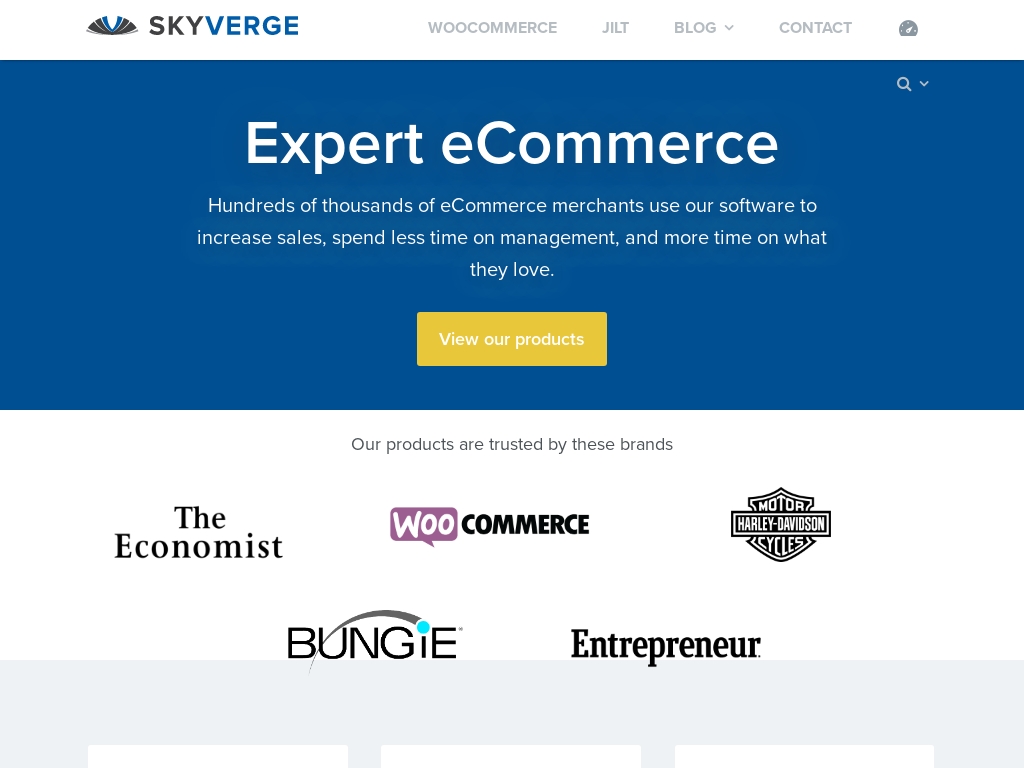

SkyVerge, a software company, has grown rapidly with revenue of $350,000 per month, over 100,000 eCommerce customers, and a globally distributed team of 30 people, all through starting with consulting projects and building focused and solutions-based products, acquiring small products from other developers, and focusing largely on content marketing and providing excellent customer support.




3. Browse AI ($1.3M/year)
Ardy was working on a project that involved scraping web data for marketplace sellers. He found it challenging to maintain custom scrapers due to the constantly evolving websites and regulations.
Understanding that tech giants monopolized valuable live data, he aimed to democratize web data access for individuals and small businesses. This led to the launch of Browse AI in 2021, which aims to break down barriers to accessing important web data.
How much money it makes: $1.3M/year
How many people on the team: 18

Ardy Naghshineh, founder of Browse AI, revolutionizes web scraping automation, democratizing access to valuable live data for individuals and small businesses, with an impressive growth strategy that drove initial traffic through Indie Hackers and Twitter.




4. OneUp ($1.2M/year)
Davis Baer, the co-founder of OneUp, came up with the idea for the social media scheduling tool after experiencing the dissatisfaction and boredom of working in the corporate finance world. He wanted to create a tool that would automate time-consuming tasks and help businesses increase visibility on social media. Baer used unorthodox marketing techniques, such as creating a spreadsheet comparing 90 different scheduling tools, to attract and retain customers.
How much money it makes: $1.2M/year
How many people on the team: 4
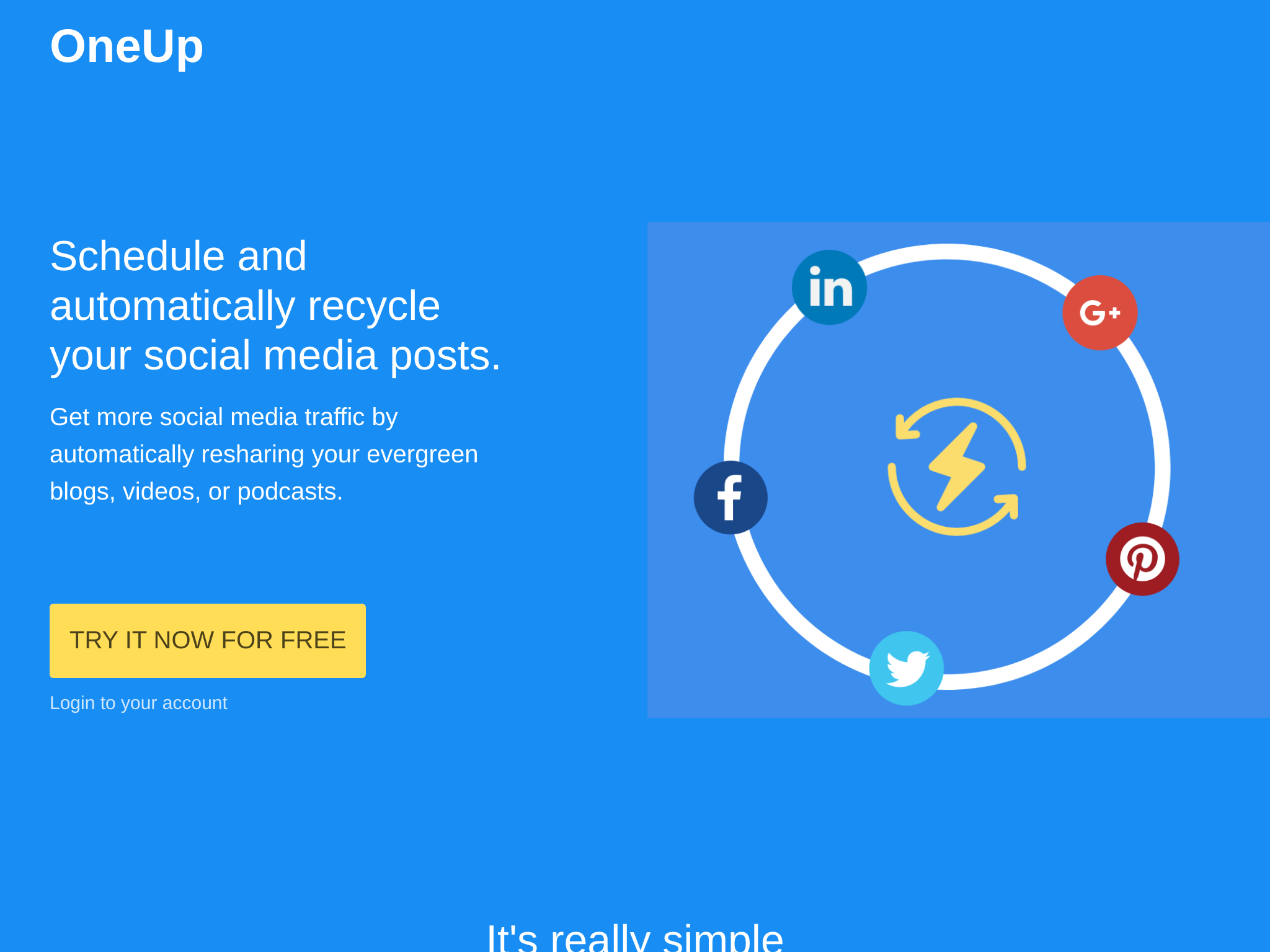

OneUp is a social media scheduling tool that helps businesses make more money by automating time-consuming tasks, allowing you to schedule Google My Business, Facebook, Instagram, Twitter, and LinkedIn posts, with the unique feature of allowing for posts to be set on repeat automatically.




5. Momentum ($996K/year)
Levi came up with the idea for Momentum from his experience working remotely, often as a freelancer and in startups.
He wanted to create something that would help him stay motivated and focused throughout the day. Inspired by the concept of a personal dashboard, akin to the sophisticated interfaces seen in movies, he woke up one morning with a vision for the project.
Eager to bring it to life, he designed it in Photoshop and posted the concept on Instagram that afternoon. His long-time friend saw the post and did the initial legwork, validating the idea

How much money it makes: $996K/year
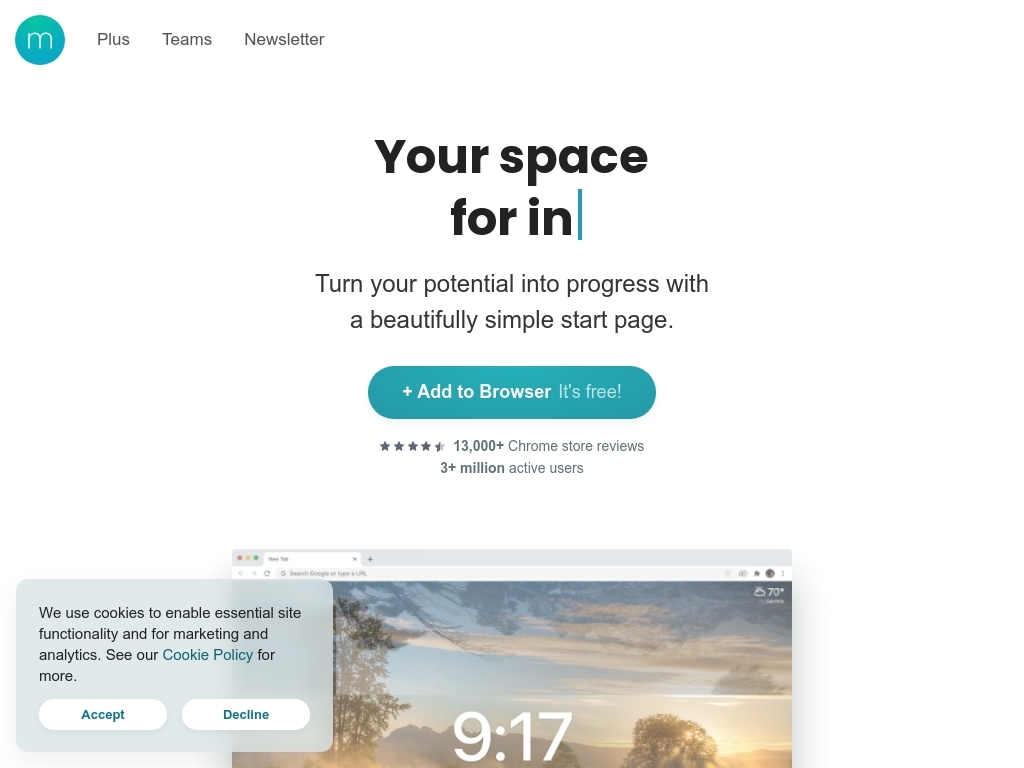

Discover how Momentum Dashboard grew from a personal project into a $3.6M/year business, offering a Chrome extension to boost productivity at $4.95/Month or $39.95 Billed annually, with a free plan available.




6. RatePunk ($600K/year)
Justinas Albertynas, one of the founders of RatePunk, came up with the idea for the travel-tech startup after realizing the frustration of comparing hotel prices on different booking websites. After experiencing the inconsistency in prices, Justinas saw an opportunity to create a browser extension that would compare prices in real-time, saving users time and money. The product has gained traction quickly, with over 3000 users in just a few weeks and reaching the top of the Apple Store charts in multiple countries.
How much money it makes: $600K/year
How much did it cost to start: $5K
How many people on the team: 20

Travel-tech startup RatePunk created a browser extension that compares hotel prices across different booking websites for free and achieved over 3,000 installs within a few weeks of launch, while learning valuable marketing lessons from social media platforms, micro-influencers, and online communities.




7. Browserless ($600K/year)
Browserless was something Joel stumbled upon while building other things. At the time, he was building a wishlist app for his family to create birthdays and holidays list, which required gathering items across the internet in one place. As a developer, he couldn't find an easy way to do that and the existing options were costly.
How much money it makes: $600K/year
How much did it cost to start: $500
How many people on the team: 0
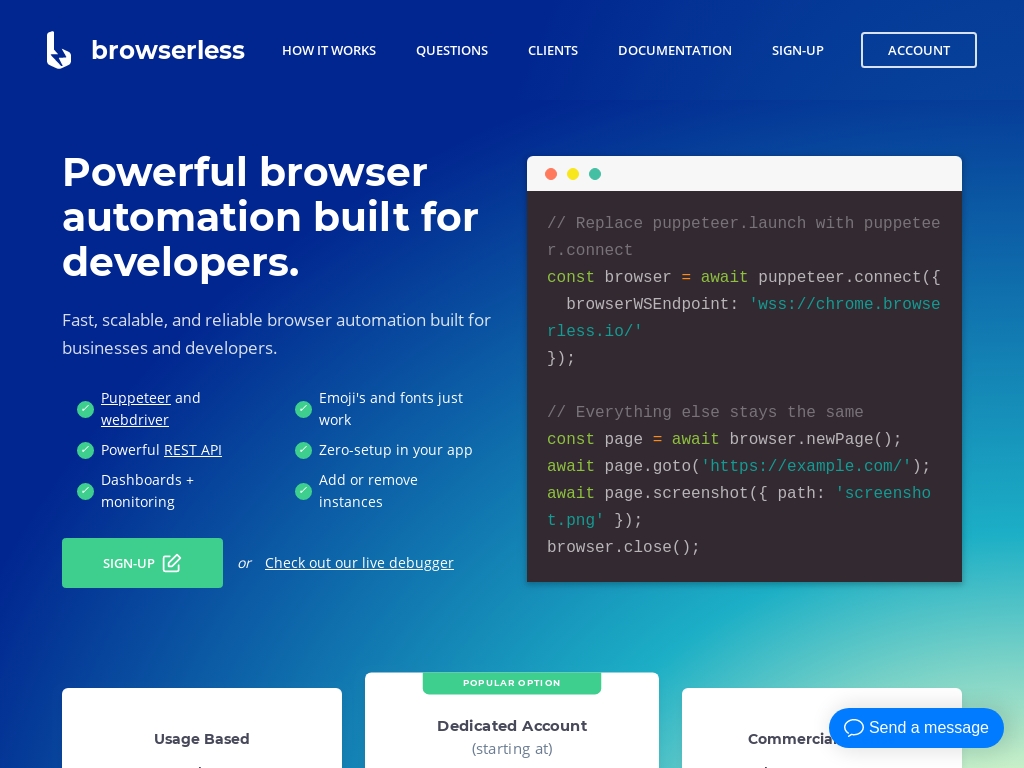

One-person SaaS business browserless allows users to automate tasks with a web browser, generating about $28,000 in sales for the month of September, and gained traction through blogging and supporting customers one-on-one.




8. Eightify ($540K/year)
Eightify is a Chrome extension that utilizes AI to generate concise summaries of YouTube videos.
Users save time by quickly watching or reading the main points of lengthy videos without having to the full video.
Alex Kataev got the idea for Eightify after experiencing frustration with lengthy videos. At the same time, he realized the potential of AI, particularly GPT-3, to streamline content consumption.
He identified the need for a tool that could summarize videos quickly and efficiently, leading to the development of Eightify.
How much money it makes: $540K/year
How much did it cost to start: $23K
How many people on the team: 3
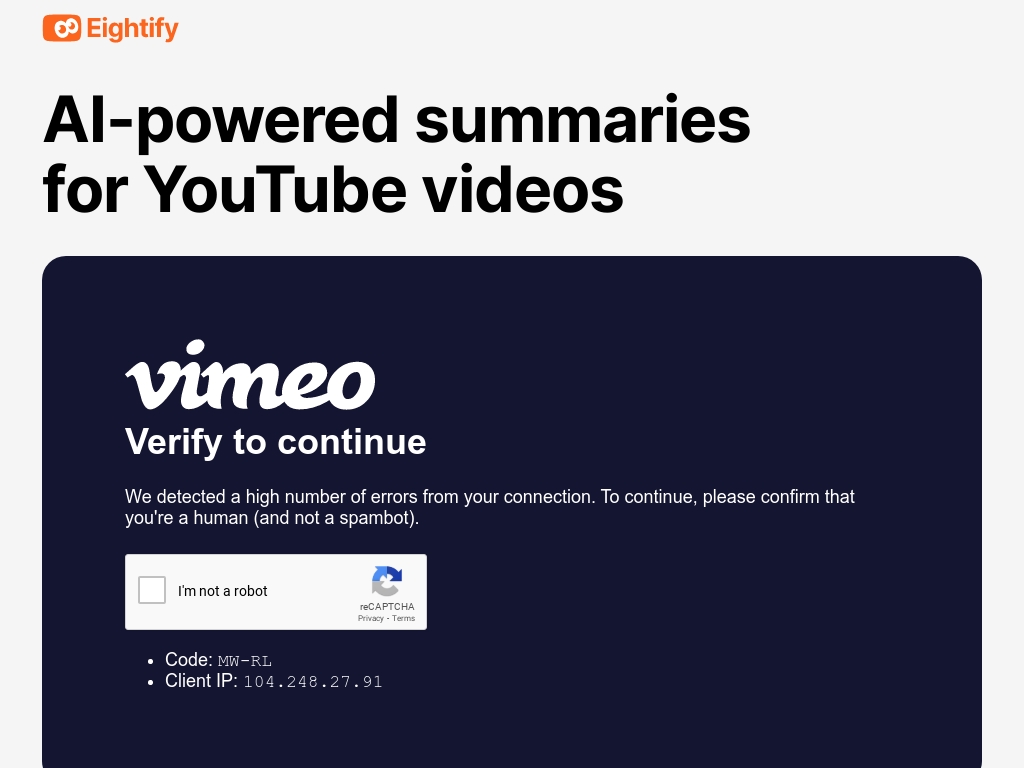

Learn how Alex Kataev turned frustration with lengthy YouTube videos into a thriving business with Eightify, attracting over 100,000 users and generating an average of $45K per month with a freemium pricing model.




9. COLDINBOX ($420K/year)
Arthur Backouche came up with the idea for Coldinbox while looking for a new job in growth/digital marketing. He discovered a tool to send bulk invitations on LinkedIn with personalized messages and used it to successfully engage with startups and generate leads. Seeing the potential, he decided to develop his own SaaS product, Coldinbox, which is now being used by B2B entrepreneurs, consultants, and business development managers.
How much money it makes: $420K/year
How many people on the team: 0


Two entrepreneurs developed Coldinbox, a bulk LinkedIn messaging tool that assists B2B business development managers in converting high-value prospects into leads and customers, resulting in $35,000 in monthly profits.




10. CrankWheel ($374K/year)
Jói Sigurdsson, a former Google employee, came up with the idea for CrankWheel while brainstorming with his co-founder Gilsi. They noticed that there was a lack of screen sharing tools for consumer telesales and decided to create a solution that would allow sales teams to screen share earlier in the sales process. With $370K in annual recurring revenue and less than 1% churn, CrankWheel has been successful in helping sales teams decrease sales cycles.
How much money it makes: $374K/year
How many people on the team: 3
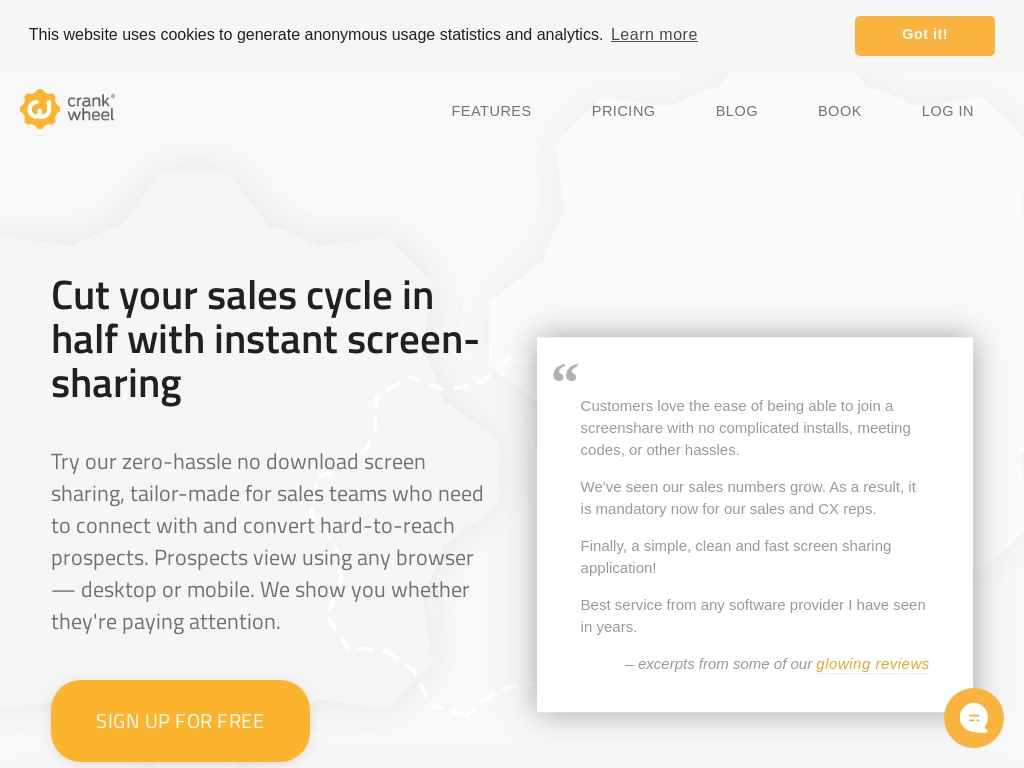

CrankWheel is a screen-sharing solution for sales teams, founded by Icelandic entrepreneur Jói Sigurdsson and his co-founder Gilsi, with $370k ARR earned and a "best B2B SaaS startup" pitching win at SaaStock, utilizing "lean startup" methodology and implementing a "land and expand" strategy to attract and retain customers.




11. Fantôm Agency ($300K/year)
Luis Camacho, founder of Fantôm Agency, discovered his passion for digital marketing after starting a successful clothing line and utilizing social media for promotion. After gaining experience at a marketing agency, he decided to establish his own agency focused on paid advertising, which now earns approximately $8,600 per month.
How much money it makes: $300K/year
How many people on the team: 1
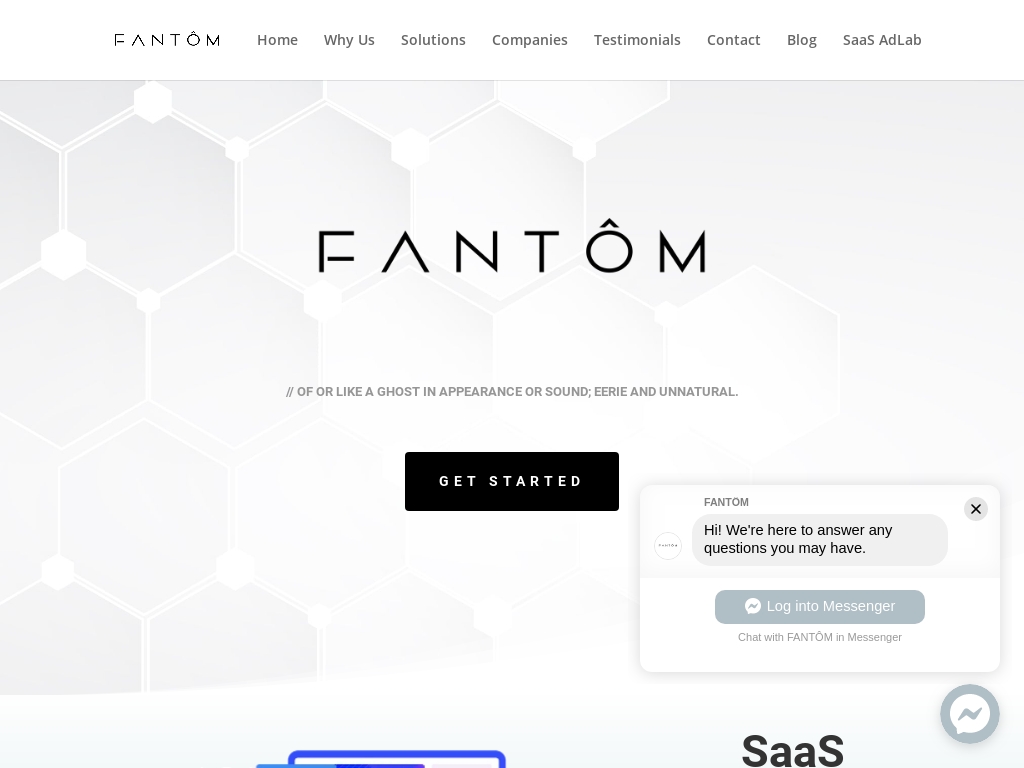

Fantôm Agency founder Luis Camacho shares how he built his digital advertising agency from scratch, focusing on helping mid-to-late stage SaaS companies scale through paid advertising channels and generating around $8,600 per month without significant overhead costs.




12. Gikken ($224K/year)
Alex, the co-founder and CEO of Gikken, came up with the idea for their flagship product, Mate Translate, while in high school. As an avid language learner, he wanted a fast and efficient way to translate words and sentences without interrupting his workflow. He developed the Instant Translate Chrome extension, which later evolved into Mate Translate, and eventually expanded it to other platforms with the help of developers. The business now generates around $18,000 a month and has a user base of 800,000 people.
How much money it makes: $224K/year
How much did it cost to start: $0
How many people on the team: 1
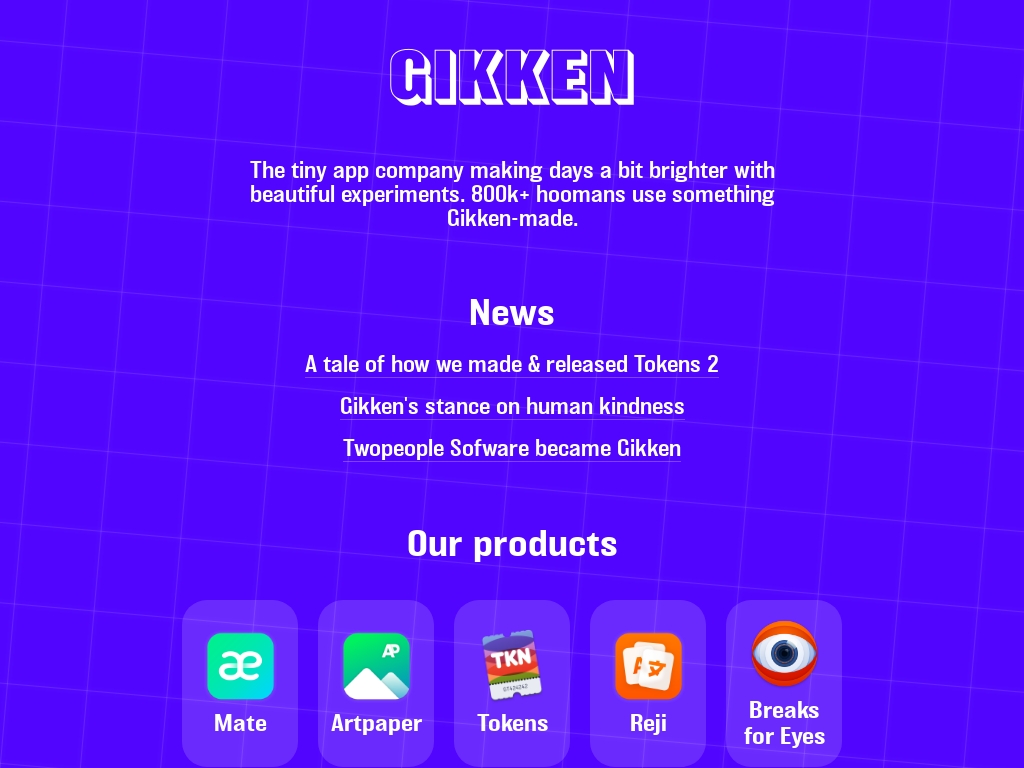

Gikken is a small, profitable European company founded by Alex that makes browser extensions and apps used by 800,000 people every month, with their flagship product, Mate Translate, generating around $18,000 a month, but monetizing their user base better is their top priority for the next year.




13. Sync2Sheets ($108K/year)
Leandro, a former freelance software developer from Buenos Aires, pivoted from freelancing to building Sync2Sheets, a tool syncing Notion databases with Google Sheets. Launched rapidly in just two weeks, the product now boasts $9k MRR and over 400 paying customers, including Canva and Wix.
How much money it makes: $108K/year
How much did it cost to start: $0
How many people on the team: 0
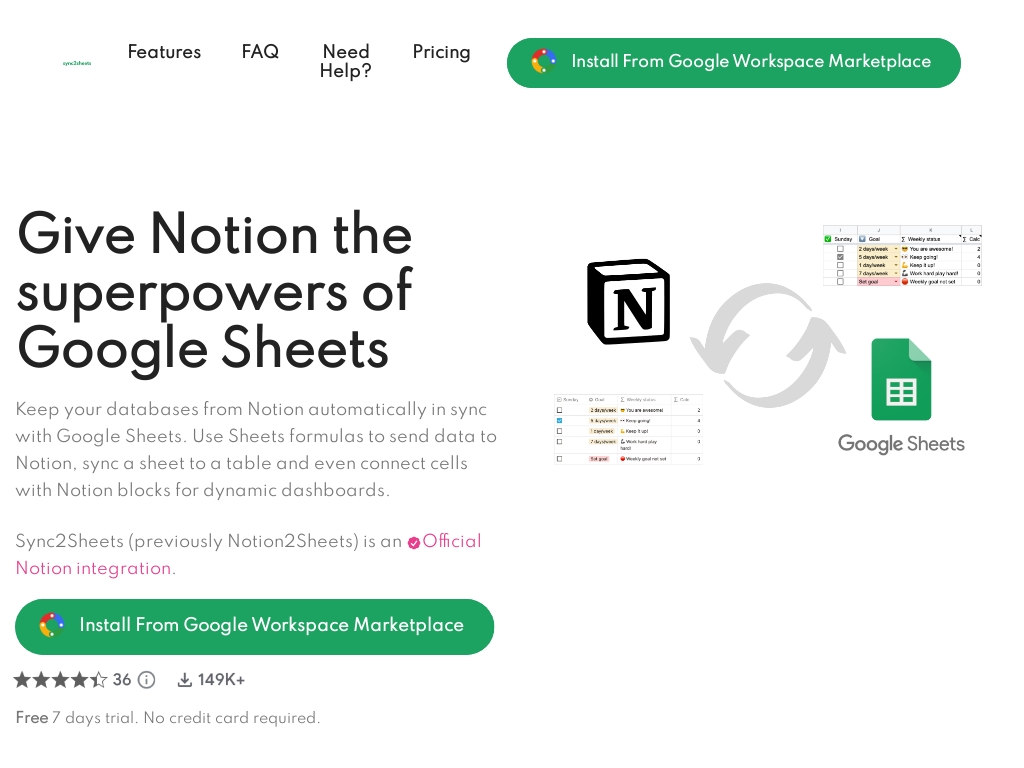

A Software Engineer turned SaaS founder shares the journey of building Sync2Sheets, a Google Workspace Add-On that syncs Notion databases with Google Sheets, generating $9k MRR with over 400 paying customers, strategic marketing tactics, and plans for expansion into other services.




14. Write.as ($34.8K/year)
Matt Baer, founder of Write.as, came up with the idea for his business in 2014 while working at a social media startup. He was inspired by the need for privacy and free expression in the face of increasing government surveillance, and created a simple writing platform that required no sign-up and focused on usability and privacy. Since then, Write.as has grown to host over 75,000 sites and 500,000 articles, with plans to expand into new areas like newsletters and company communications.
How much money it makes: $34.8K/year
How many people on the team: 1
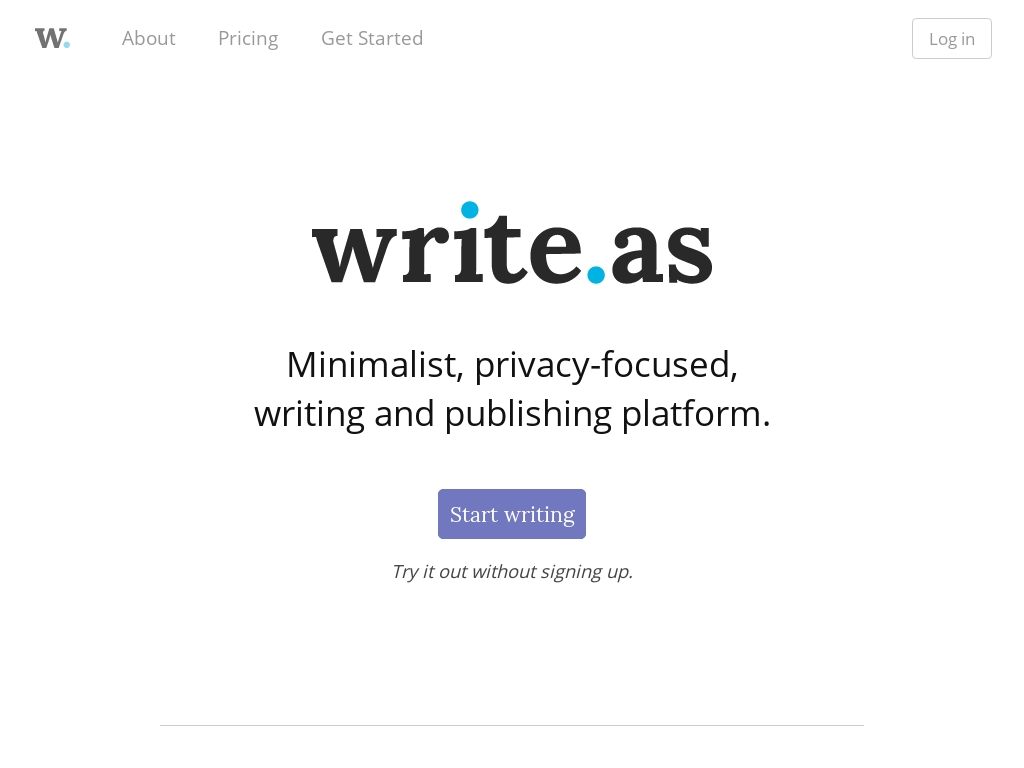

Founder of Write.as, Matt Baer, shares his journey of building a suite of integrated creative tools, including a writing/blogging platform, photo-sharing tool, and submission management system, which host over 75,000 sites and power hundreds of independent WriteFreely sites across the web, with revenue growing by 200% year-over-year since launching paid plans.




15. T.LY ($31.2K/year)
Tim Leland, creator of the URL shortener and link management tool T.LY, After reading that Google would be shutting down its URL shortener service in March 2019, the founder saw an opportunity to develop a link shortener service that could fill the gap.
He also recognized that there was a demand for a link shortener API for use in his day job, specifically with a texting application. Realizing that other companies would also benefit from this service, he decided to build his own shortener API.
How much money it makes: $31.2K/year
How much did it cost to start: $50
How many people on the team: 0

T.LY is a simple URL shortener and link management tool that has over 8 million short URLs and has tracked over 80 million clicks, with a browser extension (https://t.ly/extension) having over 350,000 active users and making over $2,600 a month.




16. Bluedot ($24K/year)
Ruslan Halilov, along with his co-founder, launched Bluedot, an AI Chrome extension for Google Meet, after struggling with documenting decisions during their staffing agency's numerous remote meetings, eventually securing $1.5K MRR and 500 daily active users.
How much money it makes: $24K/year
How much did it cost to start: $300K
How many people on the team: 2

Bluedot is a successful AI Chrome extension for Google Meet that generates meeting notes, boasting 500 daily active users and a $1.5K MRR with a 50% monthly growth rate just two months after launching.




17. Blurweb App ($18K/year)
The founder of the Blurweb App started teaching code on YouTube but realized he was revealing a lot of sensitive information like emails and API keys. Whenever he had to make a screen share video he spent hours trying to add blur and buying video editing tools. He thought that there had to be a better solution than this. Although he did not talk to many people to validate the idea, he believed that if he needed it, other content creators might need it too.
How much money it makes: $18K/year
How much did it cost to start: $5
How many people on the team: 0
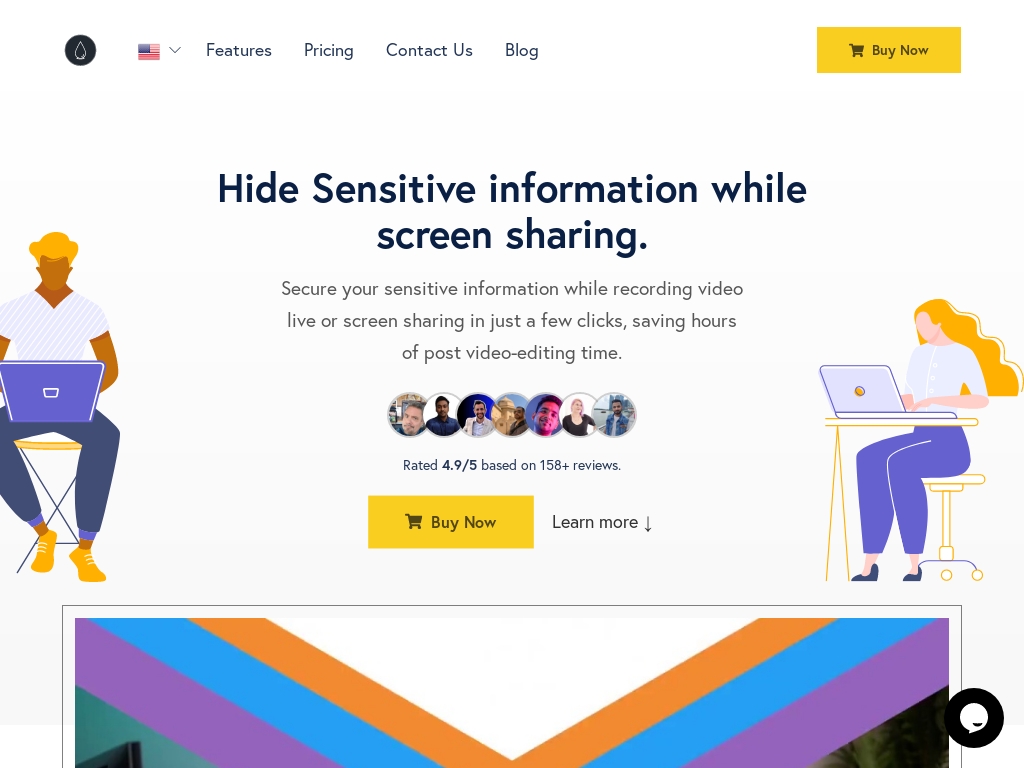

21-year-old software developer from India creates profitable browser extension, blurweb.app, saving content creators hours of post-video-editing time, with 2000+ customers and $1000+ in monthly revenue and plans to launch on Safari and other extension marketplaces.




18. Baxter Inc. ($12K/year)
The founder was having a tough time managing his Gmail inbox when he came up with the idea of a dashboard. He then interviewed dozens of regular American adults to see if the idea was appealing. Soon, he found out that the majority of people preferred a simple tool rather than a dashboard. This motivated him to build Baxter.
How much money it makes: $12K/year
How much did it cost to start: $50K
How many people on the team: 1
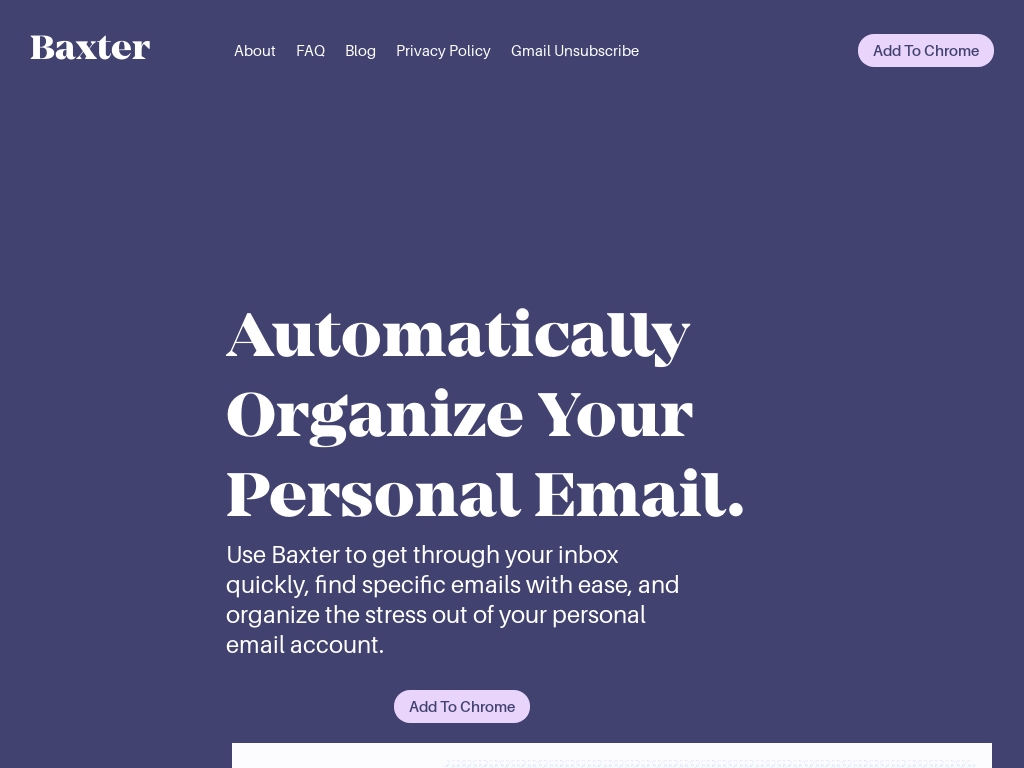

A case study on the founder of Baxter, a browser extension that helps Gmail users organize their inboxes by unsubscribing from newsletters, deleting unneeded emails, and automatically labeling and organizing emails, which generated over $1,000 in monthly recurring revenue in just nine months and successfully acquired an existing Gmail Unsubscribe extension to drive organic user growth.




19. BuyLo ($120/year)
Ju Li, co-founder of GetBuyLo.com, came up with the idea for their business while working in the insurtech industry and noticing increased polarization in society due to social media use. Believing that travel can bring people together, Ju Li and their team developed a browser extension that scans flight booking sites for lower prices, aiming to make travel more affordable, convenient, and time-saving. Despite launching during the COVID pandemic, GetBuyLo.com has garnered positive feedback from early users and gained recognition from YCombinator's Startup School newsletter and popular subreddits.
How much money it makes: $120/year
How much did it cost to start: $2K
How many people on the team: 1
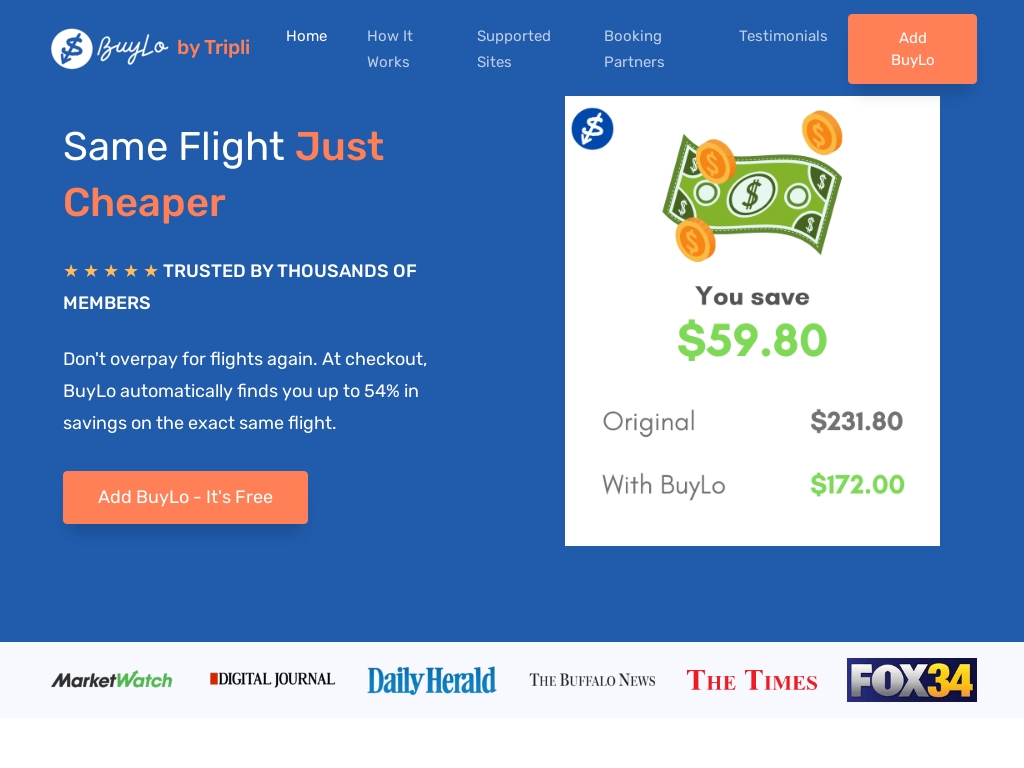

GetBuyLo.com co-founder Ju Li discusses the pivots their team had to make to build a browser extension that scrapes flight prices in real-time and finds users a lower price on the same flight, including lessons learned about moving forward with a customer-first mentality.





Download the report and join our email newsletter packed with business ideas and money-making opportunities, backed by real-life case studies.

Download the report and join our email newsletter packed with business ideas and money-making opportunities, backed by real-life case studies.

Download the report and join our email newsletter packed with business ideas and money-making opportunities, backed by real-life case studies.

Download the report and join our email newsletter packed with business ideas and money-making opportunities, backed by real-life case studies.

Download the report and join our email newsletter packed with business ideas and money-making opportunities, backed by real-life case studies.

Download the report and join our email newsletter packed with business ideas and money-making opportunities, backed by real-life case studies.

Download the report and join our email newsletter packed with business ideas and money-making opportunities, backed by real-life case studies.

Download the report and join our email newsletter packed with business ideas and money-making opportunities, backed by real-life case studies.










